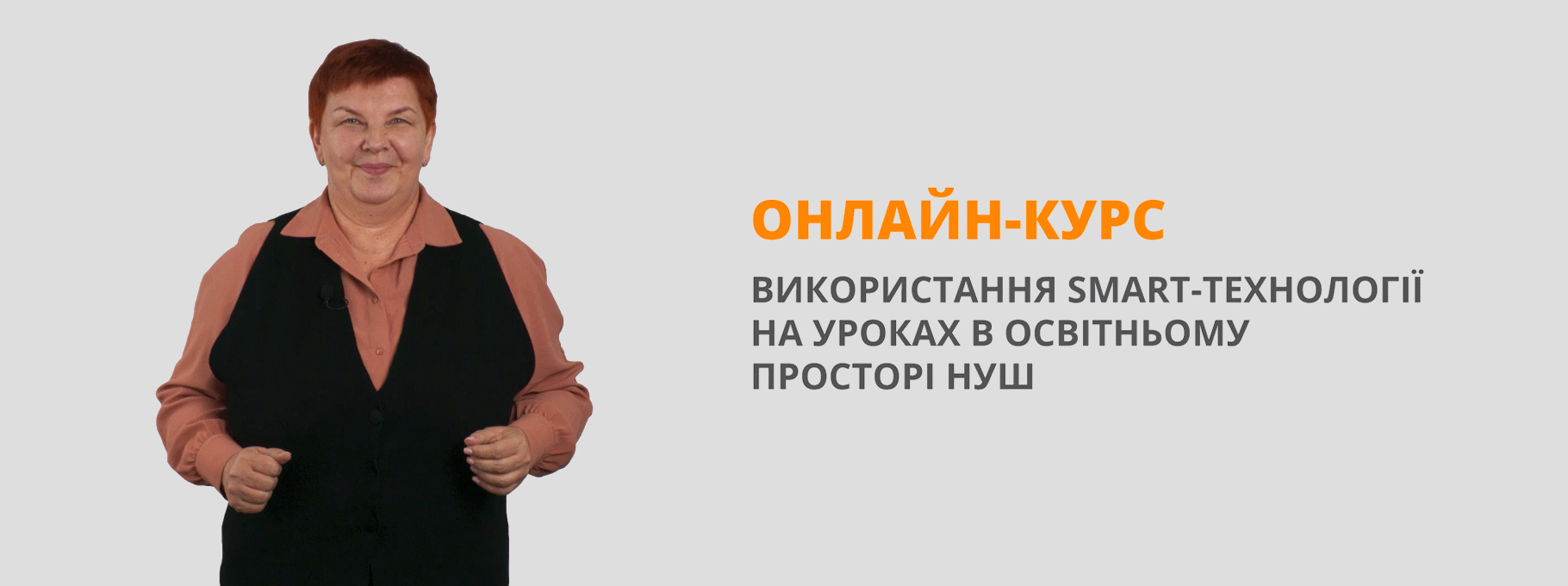Урок на тему "Professions"
The subject of the lesson: Professions
Aims: to provide students with practice of vocabulary: to revise was/were and there was / there were: to improve listening and reading skills.
Outcomes: students will be better at pronunciation of professions and using Past Simple tense of the verb to be.
Materials required: pupil’s books and workbooks, pictures, cards with tasks.
PROCEDURE
1. INTRODUCTION
Good afternoon, students! Today we are talking about professions and how they influenced the names in the past, how parents name their children nowadays, about brand names which
are popular.
2. WARMING-UP
a) Students look at photos and describe them.
(1 see a fire lighter. He wears a uniform. He puts out tire and rescue people from ear accidents...)

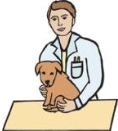



b) brainstorm (повторення усіх професій). Match the descriptions to the professions.
![]()
![]() chef writer
chef writer
![]()
 teacher
teacher
![]() hairdresses
hairdresses
![]() actor
actor
![]()
![]()
![]()
![]()
nurse scientist
explorer farmer
- LEXICAL WARMING-UP
Students sing a song “PEOPLE IN MY TOWN”
I see a fire fighter fighting fires
I see a car mechanic changing tires
I see a pilot flying through the air
I see a barber cutting people's hair
I see the people in my town and I say....
Hey brother!
What’s going down?
I see a postman with the mail
I see a police putting folk in jail
I see a life guard at the swimming pool
I see the teachers in the local school
I see the people in my town and 1 say....
Hey brother!
What’s going down?
Doctors, nurses, astronauts, judges, lawyers
in the courts!
I see an actor acting on the stage
I see a writer writing on a page
I see a chef working in a restaurant,
And a waiter asking what you want,
I see the people in my town and I say ...
Hey brother!
What's going down?
- LISTENING
Teacher. Magda receives the result of her job interview. Listen and do the tasks.
Magda: (talking into phone) So...ok...hmm... yeah! That’s great news!
Olivia: So? Did you get the job?
Magda: Yes!!!
All: Hooray!! Fantastic! Well done!!
Magda: But...
Harry: There’s always a 'but'...
Magda: It’s only on a trial basis... just for a month.
Harry: Ok, that’s pretty normal actually. Most companies do that.
Olivia: But they are paying you, yes?
Magda: Oh yes, the salary isn’t bad. It’s not an internship.
Harry: I did internships for ages... had to work for a month to get experience - no pay! - and then I never got offered the real job at the end. Like now! I’m doing this work for Johnny’s company - they want me to work at weekends too - Saturdays and Sundays - with no extra money!
Olivia: That’s terrible!
Harry: I don’t know what to do... I want to say ’no’, but I’m afraid I'll lose the job...
Olivia: You’ll have to think carefully about it!
Magda: Or you’ll be trying to do an internship again!!! Only joking! It can be important to do an internship if you want to get experience - things to put on your CV...
Harry: Yeah, I guess you’re right, but I’m past that stage... I’ve got lots of experience now.
Magda: I’m really worried though, about my first day, really nervous. I might be terrible!
Olivia: Don’t worry, Magda, you’ll be great. Show them how good you are in the first month and they’ll be offering you more money by the second month!
Magda: Let’s hope so!
Harry: What are you going to be doing exactly?
Magda: Well, it’s a lot of admin work... but I do get a chance to work with the senior partners on some designs.
Harry: Great...What is it you do again?
Olivia: Harry! How come you always forget this stuff?
Magda: Architecture! I’m an architect! I design buildings!
Harry: Oh yeah, right, of course...
Sarah: She’s a good one too, Harry - I’ve seen some of her drawings. I keep on telling her that she should go to China - there are lots of opportunities there at the moment.
Magda: Maybe, one day. That’d be really interesting...How are you, Sarah?
Sarah: OK...
Harry: How’s the new flat?
Sarah: That’s the problem...
Olivia: Oh no! You’ve only just moved in!
Magda: I thought the flat was great...
Sarah: The flat is nice, but the problem is the landlord...
Olivia: Isn’t that Fadi’s cousin?
Sarah: Yes, exactly... but he’s really intrusive.
Magda: Intrusive?
Sarah: He comes round all the time, wants to know everything about me. I think that if I pay rent, that’s it, I shouldn’t have to tell him anything else.
Olivia: I see... that’s not on, is it? Have you mentioned it to Fadi?
Sarah: No, I don’t know how to. He was so kind helping me get the place. I don’t want to seem rude.
Olivia: Would you like me to have a word with him?
Sarah: Could you? That’d be really great. I’d really appreciate it.
Olivia: I’ll say something the next time I see him! Promise!
- Choose the correct word to write sentences.
think paying moved get lose helping say seen
- Did you the job?
- I’m afraid I’ll my job if 1 am late again this week.
- You’ll have to carefully.
- Are they you a good salary?
- I’ve some of her drawings, they’re great.
- You’ve only just in to your new flat!
- He was so kind me find a flat.
- Choose the correct verb in each sentence
- Magda got / didn’t get the job.
- The salary is / isn’t good.
- Harry usually remembers / forgets people’s jobs.
- Sarah has recently bought / rented a new flat.
- Fadi’s cousin wants to talk / know about Sarah.
- Olivia offers / refuses to speak to Fadi.
- Olivia will see / phone Fadi.
5. CHECKING HOMEWORK
- Before reading
Students discuss the questions (in pairs)
- What are your favourite first names?
- What are common surnames in your country?
- What do you think of brand names and celebrity names for children?
- While reading
Read the text and match the headings with the paragraphs 1-5.
1._____First names were important in England
in the 11th century. The population was small and most people lived in villages. Surnames or family names weren’t necessary because there weren’t many people. When the French king William I invaded England in 1066, he wasn’t happy with this. In his opinion, people needed surnames.
2._______In those days, there were different ways to choose a surname: some people used their jobs (Baker, Cook), some used places (Hill, Wood), some used their nicknames (Short, Brown) or the name of a parent.
3._______These old surnames are common in modem Britain, but many first names are different. There is nothing new in naming a child after a famous person, but the type of celebrity is different today. In the past, the names of queens, kings, scientists, artists or writers were fashionable. When Victoria was the Queen Of England in the 19th century, her name was very popular.
4._________Many British parents today name their children after pop stars, sport stars or film stars like Kylie, Keira, Brad or Wayne. They do this because they' are fans of these celebrities. One football fan named his baby after the Manchester United team. His son has got a first name and ten middle names.
5._________Other parents want their children to have original first names and they sometimes choose the brand names of products. One year there were 298 Armanis, 49 Canons, 5 Jaguars, 1 Xerox and 353 girls named Lexus.
1- C (What? No surname?)
2- F (First names of the past)
3- A (The English choose their surnames)
4- B (Fans and stars)
5- E (Is it a baby or a car)
c) After reading
- Are sentences true or false (if the sentence is false correct it and find the prove in the text):
You can have lots of middle names in Britain.
Some children have brand names for names.
Surnames were necessary in England before the 11th century.
Brown and Short were nicknames in the past.
Many parents named their daughters after singers in the 19th century.
- Ask and answer the questions to the text. Students work in small groups and discuss:
Why wasn’t the French King William I happy when he came to England in 1066?
What were the ways to choose the surnames?
Why do parents choose brand names for their children?
How do many parents today name their children?
What was the name of one football fan?
What name was popular in the 19th century?
6. RELAX MINUTE
7. PRACTICING GRAMMAR
Teacher. Use question words and the Past Simple tense of the verb be and write questions.
Discuss questions with your partner.








1.________your favourite primary school teachers last year?
2.________ the last time you were at the park?
3._________your favourite TV programmes last year?
4._________the last place you were on holiday?
5.__________your last meal?
6._________ the last shop you were in?
7._________your favourite day last week?
8._________popular singers last year?
- Who were your favourite primary school teachers last year?
- When was the last time you were at the park?
- What were your favourite programmes last year?
- Where was the last place you were on holiday?
- When was your last meal?
- What was the last shop you were in?
- What was your favourite day last week?
- Who were popular singers last year?
- SUMMING-UP
In our today's lesson we have found out the history of names, brand names of the past. We learnt different professions, sang a song and spoke a lot in English.
- HOMEWORK
Think about your dream job in the future. What is it? Write about it in your copy-book, including questions:
- What job is it?
- Why do you like it?
- What are the best points in this profession?
![]()
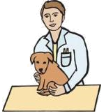


![]()
![]()
![]()
![]()



![]()

![]()

![]()
![]()
![]()





![]()
![]()

![]()
![]()



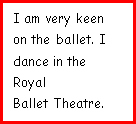
![]()

![]()
![]()

![]()


![]()

![]()

![]()

![]()
![]()
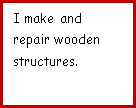


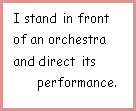
![]()
![]()

![]()
![]()

![]()
![]()
![]()

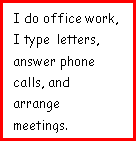

![]()

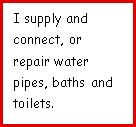
![]()
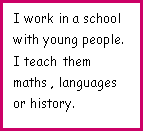
![]()
![]()

![]()
![]()
![]()


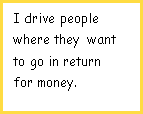

![]()
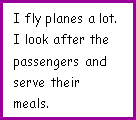
![]()
![]()

![]()
![]()
![]()
![]()
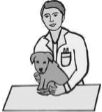


![]()
![]()
![]()
![]()



![]()

![]()

![]()
![]()
![]()


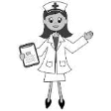


![]()
![]()

![]()
![]()



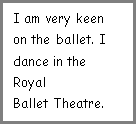
![]()

![]()
![]()

![]()


![]()

![]()

![]()

![]()
![]()
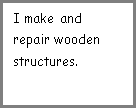


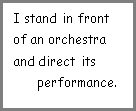
![]()
![]()

![]()
![]()

![]()
![]()
![]()

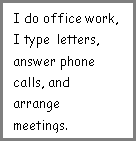
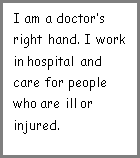
![]()
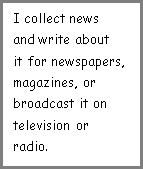
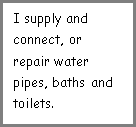
![]()
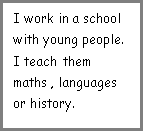
![]()
![]()

![]()
![]()
![]()


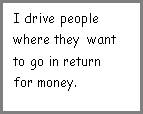

![]()

![]()
![]()

![]()
![]()
![]()
1


про публікацію авторської розробки
Додати розробку
